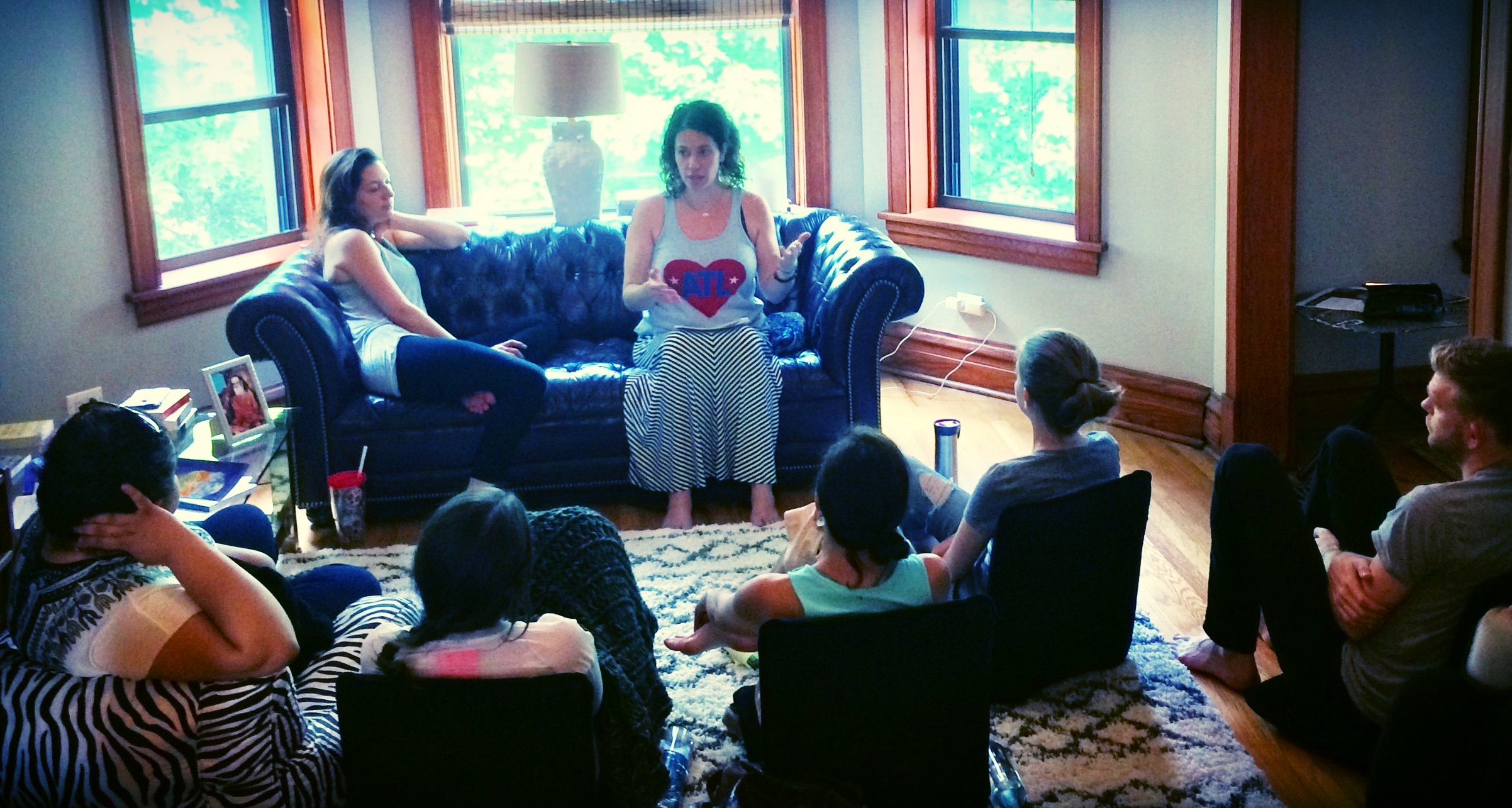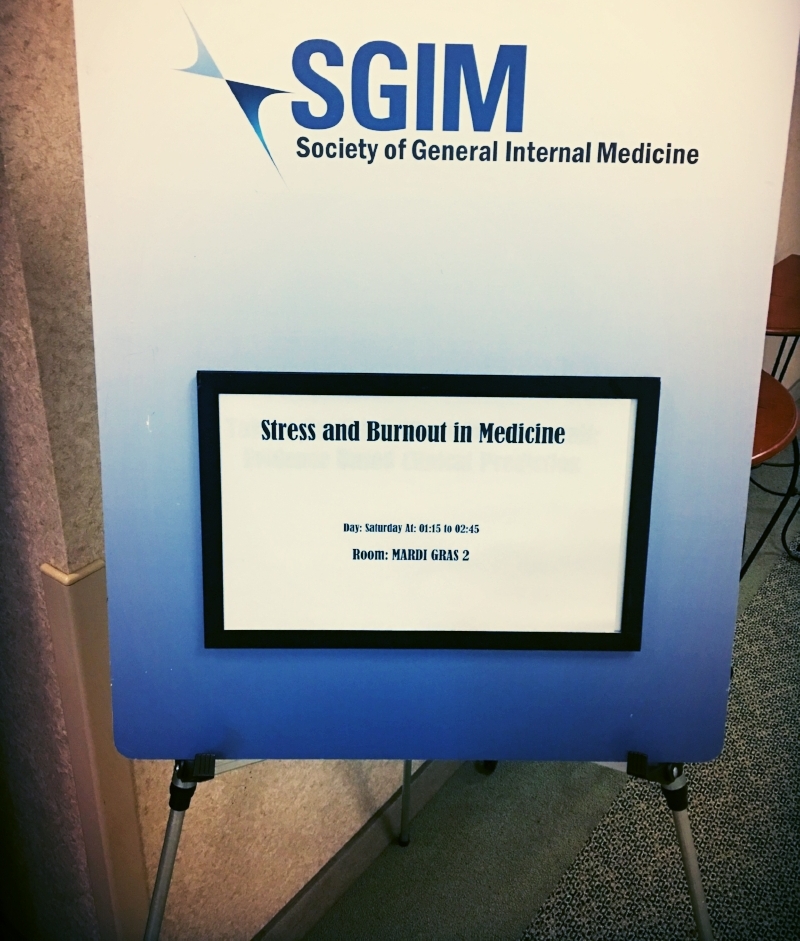
Blog

The *real* story of how I learned to meditate
This High Holiday season marks my 6th anniversary of learning Vedic meditation. It started innocently enough… It was Yom Kippur in Chicago, and a Friday night. I hadn’t been to synagogue in years. I was probably getting over yet another dramatic breakup, and had also been experiencing months of massive, soul-destroying work burnout, so I decided my friend and I should celebrate… by going to a bar. I knew exactly which bar we should go to (The Southern), and I (earmuffs, mom and dad) wanted to sit at the bar and flirt with dudes. Not my usual M.O., but somehow I knew that was definitely the plan.

Keeping it calm, cool, collected, and PERSPECTED
Some of you may know that I’m in the process of opening a new studio. It’s ridiculously exciting, and I’m in love with the space and with my neighborhood. However, from construction issues, to permits and zoning, all issues that are out of my control, one thing after another has tested my patience. It’s been a perfect lesson in how the world doesn’t just become unicorns, rainbows and puppy dogs once we start meditating, and it inspired me to share some of my thoughts on how Vedic meditation has helped me to keep it calm, cool, collected, and PERSPECTED during this process.

Meditate-Anon (Part 2)- for the non-meditators!
Vedic meditation (or any physical or spiritual practice), while life-changing for meditators, can sometimes be a drag for the partners (and family members, friends, and colleagues) of meditators. Several weeks ago, I posted part 1 of this series- how Vedic meditators can make it easier for their family members, colleagues and friends, to be supportive of their practice. If you missed it, or want a refresher, you can read it here!

Meditate-Anon (Part 1)
Vedic meditation, while life-changing for meditators, can sometimes be a drag for the partners (and family members, friends, and colleagues) of meditators. They may feel left out, left behind, jealous of the time spent meditating (I’ve been told by a partner that it felt like meditation was the 3rd person in our relationship), threatened that we will evolve past wanting (or needing) them, and more. 20 minutes twice a day ends up seeming like a LOT to people who aren't practicing. ‘Wow, she’s a meditator, how cool’ turns into ‘why can’t she just miss one meditation? What’s the big deal?’. It can happen pretty quickly, if we aren’t careful, and it may end up being costly to the relationship. We don’t want our partners to feel like they need to start a chapter of Meditate-Anon, a support group for partners of meditators!

For All Reasons
Once we start looking at the world from the Vedic perspective, we start to really trust that the universe has our back. This was actually my favorite, albeit unexpected, benefit of my Vedic meditation practice. We start to see life’s events unfold in such a beautiful, quirky, knowing way, with such synchronicity, that we become able to see past what initially seem to be setbacks, and we just know that it’s gonna be ok. Actually, it’s gonna be great. Meeting got cancelled? Sweet, now I have time to work on my blog post. Bad breakup? Perfect timing; otherwise I wouldn’t be available for this new lovely person I just met.

When your ex gets married...
My ex-boyfriend got married last weekend. Just about a year after we broke up.
I found out about it a couple of months ago, in typical 2017 fashion, on Google. Some honeymoon go-fund-me page. They looked really happy and cute. That part didn’t bother me. I actually want him to find happiness.

Pain vs. Suffering
Pain vs suffering. What’s the difference? Pain is inevitable. Pain can even be helpful. Our nerves provide sensations, so that we may avoid injury. Suffering occurs when we give our pain a personality, a cause and effect, a narrative. If pain is the physical sensation we feel, suffering is the story we tell ourselves about that pain (and what the pain says about us).

9 Reasons Why Doctors CAN, SHOULD, (and often DON’T) Meditate
Knowing what I know about practicing medicine, and knowing what I know about meditation and its benefits, I often ask myself, “why don’t more doctors, and other healthcare professionals, learn to meditate?” Here are 9 reasons why doctors CAN, SHOULD, (and often DON’T), meditate:

Because... John Clease
I’ve always been one of those people who beats themselves up about every little cringe-worthy thing I have said, or done. I’d cringe for years. One example that comes to mind is that, at the age of 12, I told a friend’s dad he looked like the actor John Clease (I had been watching a VHS recording of ‘A Fish Called Wanda’ nonstop). I could tell he wasn’t at all pleased by the comparison, and I felt foolish and ashamed of my comment for decades.

Moving on, Vedic style.
It happens. We all have breakups. Even the experts struggle with their own personal relationships. Instead of asking about relationship advice, what we should all be asking is, how do we deal with breakups in a healthy way? How do we move on, Vedic style?
